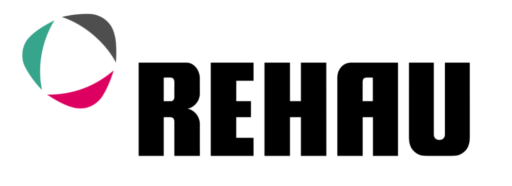News & Monitoring
REHAU extends its sustainable spirit to its logistics
Category : portraits | Published on : 12/05/21
PORTRAIT
By always using recycled materials in the manufacture of its polymer solutions, REHAU considers that the zero waste approach is an integral part of its DNA. The family business now intends to apply the same logic to its logistics, and is adopting the FRET21 approach, a system supported by the AUTF and ADEME as part of the EVE programme.
" The question of zero waste has always been an issue at REHAU," says Maxime Boileau, marketing and communication manager. Specialising in the manufacture of polymer solutions for the building, automotive and industrial sectors, this family business, founded in 1948, made the choice of the circular economy very early on. Some of its products are made up of between 40 and 75% recycled PVC, either from its own production or recovered from its customers. This recycling now represents 97,000 tonnes less CO2 emissions each year. Adopting the EVE programme's FRET21 system was a natural extension of the company's environmental approach in France for the REHAU teams. Of course, many tools for measuring the carbon footprint exist today, but only the EVE tools were developed by ADEME," explains Richard Baudouin, head of sustainability and public financing in France, and strategic buyer of recycled materials. This system makes it possible to announce reliable and comparable figures. The objective, set for the period 2020-2022, is to reduce greenhouse gas emissions from the transport of profiles manufactured in the Morhange plant (57) and stored in an adjacent warehouse by 6%. " Our second plant, located in Poix-de-Picardie (80), is not included in the scope of action FRET21, as the goods are collected there by the customers themselves ," explains Pascal Schneider, purchasing and transport buyer manager.
More racks, less impact
In Morhange, the transport and logistics teams are working on improving Filling Rate, through two actions. In addition to a transport plan that is reviewed every day to optimise the rounds, REHAU is asking its transporters to use higher vehicles that can load 24 racks of profiles rather than 18. The weight of our products allows us to do this, as each rack weighs a maximum of one tonne," adds Pascal Schneider. We would therefore remain within the PTAC (total authorised weight) limit. At the same time, the purchasing manager is in contact with REHAU's sales departments so that they can offer different customers a lower number of deliveries per week, but with the same number of products delivered, thanks to this higher load. " In case our customers do not accept, we plan to deliver more on the same round. The personalised support offered under the FRET21 scheme has also made Rehau's teams aware that many of their trucks were leaving the warehouse incomplete. 30% of our vehicles did not reach the 18 loaded racks," says the purchasing manager. Our work on the transport plan is now solving this problem. To improve Filling Rate, REHAU has also changed the way it transports its pre-assembled heating circuits. Whereas they used to have to be placed on trestles, taking up space and restricting the choice of vehicle, these circuits are now also offered on a flexible, rollable grid. " This means that we can transport more and in standard vehicles, which are usually used by courier companies," says Pascal Schneider.
REHAU reduces its carbon footprint with the will of all
Within the framework of the EVE programme FRET21 , all REHAU's divisions have been involved and have given their time. The transport and logistics, purchasing, communication, CSR,... teams worked together to find all possible solutions to limit Rehau's carbon footprint. In 2018, we were the first and only window profile extruder to make a commitment to the government to increase the proportion of recycled materials in our production," recalls Richard Baudouin. And we continue to look for carbon savings wherever we can find them. Today, we are looking for it in our logistics. The manufacturer of polymer solutions is therefore also considering the adoption of alternative energies for flows that allow it. For this, proposals from transport service providers are welcome. We have identified a carrier and a customer in the Vosges region to switch to B100, a 100% plant-based fuel, for 250 full trucks per year, for round trips of 400 km," explains Pascal Schneider, who is also encouraging the carriers he works with to adopt the EVE programme's Objective CO2 scheme. Twenty percent of them are now committed and we hope to see a large majority of them by 2022. Motivated to pursue and promote actions to reduce greenhouse gas emissions in all REHAU divisions, Richard Baudouin, Maxime Boileau and Pascal Schneider believe that " reducing the carbon footprint should not be done out of obligation, but out of a desire ".



